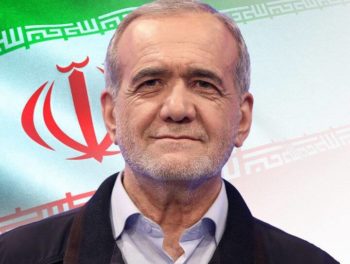The assassination of Ismail Haniyeh, a top Hamas leader, in Tehran has sent shockwaves through Iran’s security apparatus. The incident, which occurred shortly after the inauguration of Iran’s new president, has exposed a significant vulnerability in the country’s defenses.
The explosion that claimed Haniyeh’s life took place in a heavily guarded military-run guesthouse in northern Tehran. This location, typically considered one of the most secure in the capital, was breached despite heightened security measures in place for the presidential inauguration. The audacity and precision of the attack have left Iranian officials scrambling to understand how such a high-profile target could be eliminated within their borders.
Sweeping Arrests and Ongoing Investigation
In response to this security failure, Iran has launched a wide-ranging investigation, resulting in the arrest of more than two dozen individuals. Those detained include senior intelligence officers, military officials, and staff members from the guesthouse where Haniyeh was staying.
The Revolutionary Guards Corps’ specialized intelligence unit has taken charge of the investigation. Their primary focus is identifying and apprehending members of the assassin team responsible for planning and executing the attack. The intensity of the investigation reflects the gravity of the situation and the pressure on Iranian authorities to uncover the truth behind this brazen act.
Revolutionary Guards Take Charge of Investigation
The Revolutionary Guards Corps’ specialized intelligence unit for espionage is now leading the investigation. Their goal is to track down the suspects involved in planning and executing the assassination. The Guards announced that the scope and details of the incident are under investigation and will be revealed in due course.
Following the attack, Iranian security agents conducted a thorough raid on the guesthouse compound, placing all staff members under quarantine and confiscating electronic devices. A separate team of agents has been interrogating senior military and intelligence officials responsible for safeguarding the capital. Some officials have been detained pending the completion of investigations.
Intensified Security Measures and Ongoing Investigations
In the aftermath of the assassination, Iran has intensified security measures for senior officials. Security protocols have been overhauled, with changes to the security details of senior officials and the replacement of electronic equipment such as mobile phones. Some senior officials have also been relocated for their safety.
The investigation extends to Tehran’s international and domestic airports, where agents are reviewing months of surveillance footage and flight lists. Iranian authorities believe members of Mossad’s assassin team are still in the country and are determined to apprehend them. The heightened security measures and ongoing investigations underscore Iran’s commitment to addressing the significant breach in its security apparatus.
Implications for Iran’s Security and Reputation
The assassination of Ismail Haniyeh represents more than just a security lapse; it’s a significant blow to Iran’s reputation as a safe haven for its allies. Ali Vaez, the Iran director for the International Crisis Group, emphasizes the potential consequences, stating, “The perception that Iran can neither protect its homeland nor its key allies could be fatal for the Iranian regime.”
This incident has raised serious questions about the effectiveness of Iran’s intelligence services and their ability to prevent infiltration by foreign agents. The fact that the attack occurred in such a secure location, targeting a high-profile guest, has amplified concerns about the overall state of Iran’s national security apparatus.
International Reactions and Accusations
Iranian officials and Hamas have pointed fingers at Israel, accusing it of orchestrating the assassination. This assessment is reportedly shared by several U.S. officials, although Israel has not acknowledged responsibility for the attack.
The international community is closely watching Iran’s response to this incident. The country’s supreme leader, Ayatollah Ali Khamenei, has reportedly issued an order for retaliation against Israel. This development raises concerns about potential escalation in an already tense region, as Iran seeks to restore its deterrence capability and save face in the wake of this humiliating security breach.
Long-term Consequences and Policy Shifts
The assassination of Ismail Haniyeh is likely to have far-reaching consequences for Iran’s internal security policies and its relationships with allies. The incident has exposed vulnerabilities that require immediate attention and may lead to significant changes in how Iran protects its high-value targets and sensitive locations.
Sasan Karimi, a political analyst in Tehran, suggests that this security breach may necessitate a multi-faceted approach, including “arresting spies if there was infiltration, or retaliation if the operation was conducted from outside the borders, or a combination of both.” As Iran grapples with the fallout from this assassination, the world watches to see how this incident will shape the country’s future security strategies and its role in the complex geopolitics of the Middle East.














